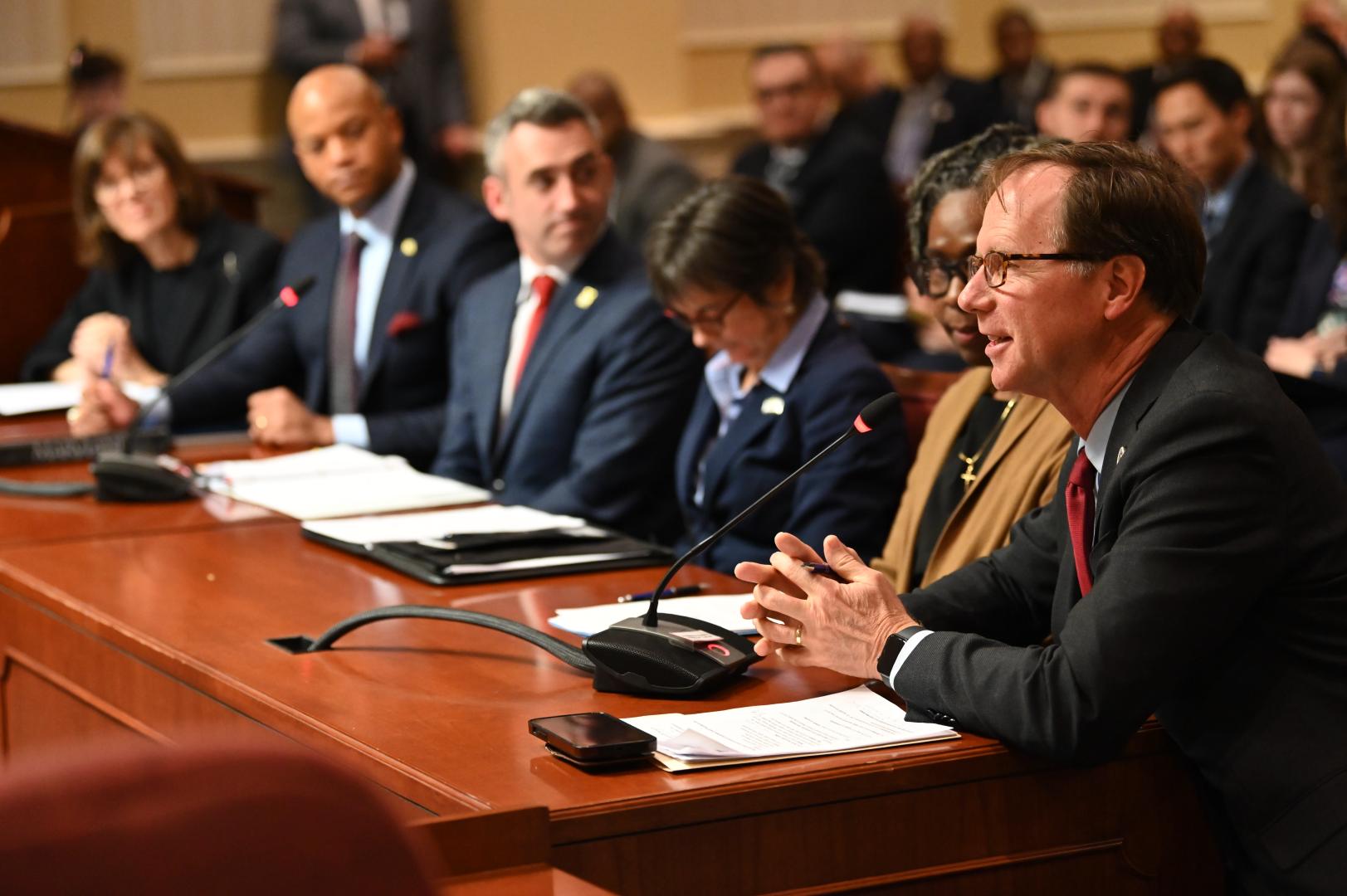You probably don’t want to hear about taxes, or about how government can’t improve services without more revenue. But this weekly letter is about what I do each week, and that’s what recent days have been about.
We started a series of long, daily budget meetings this week with the leaders of all county departments and our budget office. After each we make preliminary decisions, first on the capital side and then on what we call supplemental requests to the operating budget from department heads. The budget analysts have already reviewed each request and they make recommendations based on our projected revenues.
As we said recently at eight budget town halls, revenues are looking pretty good this year, but expenses are way up. Pay increases to stay competitive in a tight labor market, staffing of two new schools, soaring prices for materials and service contracts, the end of federal recovery grants, and an ever-increasing demand by our residents for more and better government services all combine to make this a tough year.
Thanks to conservative budgeting in recent years, we’re in better shape than the state and a lot of nearby counties. We didn’t use federal grants for recurring expenses, and we budgeted for declining revenue from real estate transfers, so we aren’t considering the cuts in teaching or public safety positions that we’re hearing about elsewhere.
That’s a good thing because we are by far the leanest government in central Maryland and can’t afford to shrink. Per capita, we have fewer police officers, firefighters, school staff, and government employees overall, which means that when we’re unable to attract the workforce we need to fill the positions we have, services suffer and processes unravel.
Counties are limited by state law in where and how they can collect revenue. Income tax rates are capped at 3.2%, and we aren’t allowed to collect sales tax. We can go as high as we want on property tax, as long as we honor our own revenue cap, but only municipalities in Maryland can charge different rates for different kinds of property to lower the burden on residents.
I can’t read American history without a bit of nostalgia for the days when our people were willing to step up and actually pay for things like winning the Civil War, saving the world from Hitler, and salvaging our economy after the Great Depression through publicly funded job opportunities, housing subsidies, and regulation of the financial sector.
It’s almost like the quality of life that those public investments made possible has produced a society that is more soft and more selfish than those that came before. We actually have political leaders equating sacrifice with being a sucker.
I understand not wanting to pay taxes. Most of us feel that way. But most of us don’t have the resources to hire lobbyists or pour large sums of money into political campaigns. The folks who can do those things are the ones advocating tax cuts for the wealthy and loopholes for their corporations. They change the rules to benefit their interests, and their wealth grows.
Here’s an example. Yesterday I spoke at a press conference in support of the Fair Share for Maryland Act, a bill that would remove half of the state’s projected $3 billion structural deficit by closing corporate loopholes, requiring out-of-state corporations to pay what our local businesses pay, and asking the top 1% of earners to pay a bit more than they do now. They are all things that have worked well in other states, and polls show that they are popular, but corporate lobbyists have rallied against the bill and prospects look bleak for this year.
Over the last two weeks, I’ve testified in support of a bill to allow counties to tax the income of top earners at a higher rate than struggling families, a bill to give counties the authority that cities have in Maryland to tax commercial and residential property at different rates, and against a bill that would put a casino in every resident’s smartphone who downloads one, and tax the gamblers at a rate that far exceeds what we tax millionaires. Government needs revenue but we need to be careful about where we find it.
I also testified this week in support of Governor Moore’s housing agenda and his bill to address childhood and intergenerational poverty, both of which cost money and both of which deliver the workforce that our businesses desperately need.
To me, good policy isn’t rocket science. It simply requires that we remember what we were taught in basic science, economics, and religion. We are connected.
Like an ecosystem, an economy, or a church - our county, our state, and our nation are structures that we can choose to nurture or dismantle. And if we choose to nurture them, all of us must step up according to our abilities and our means. We’ve done it before, and we can do it again.
Until next week…
Steuart Pittman
Anne Arundel County Executive

